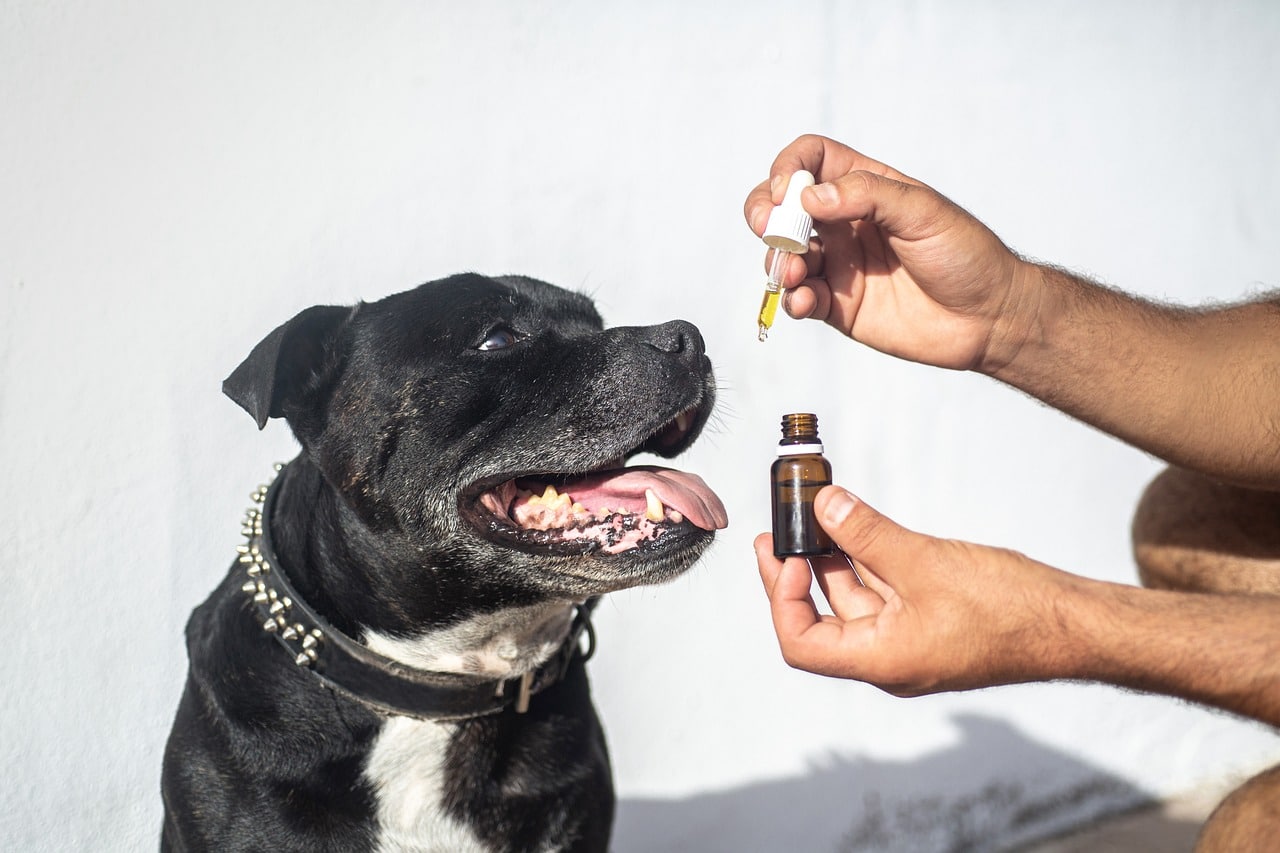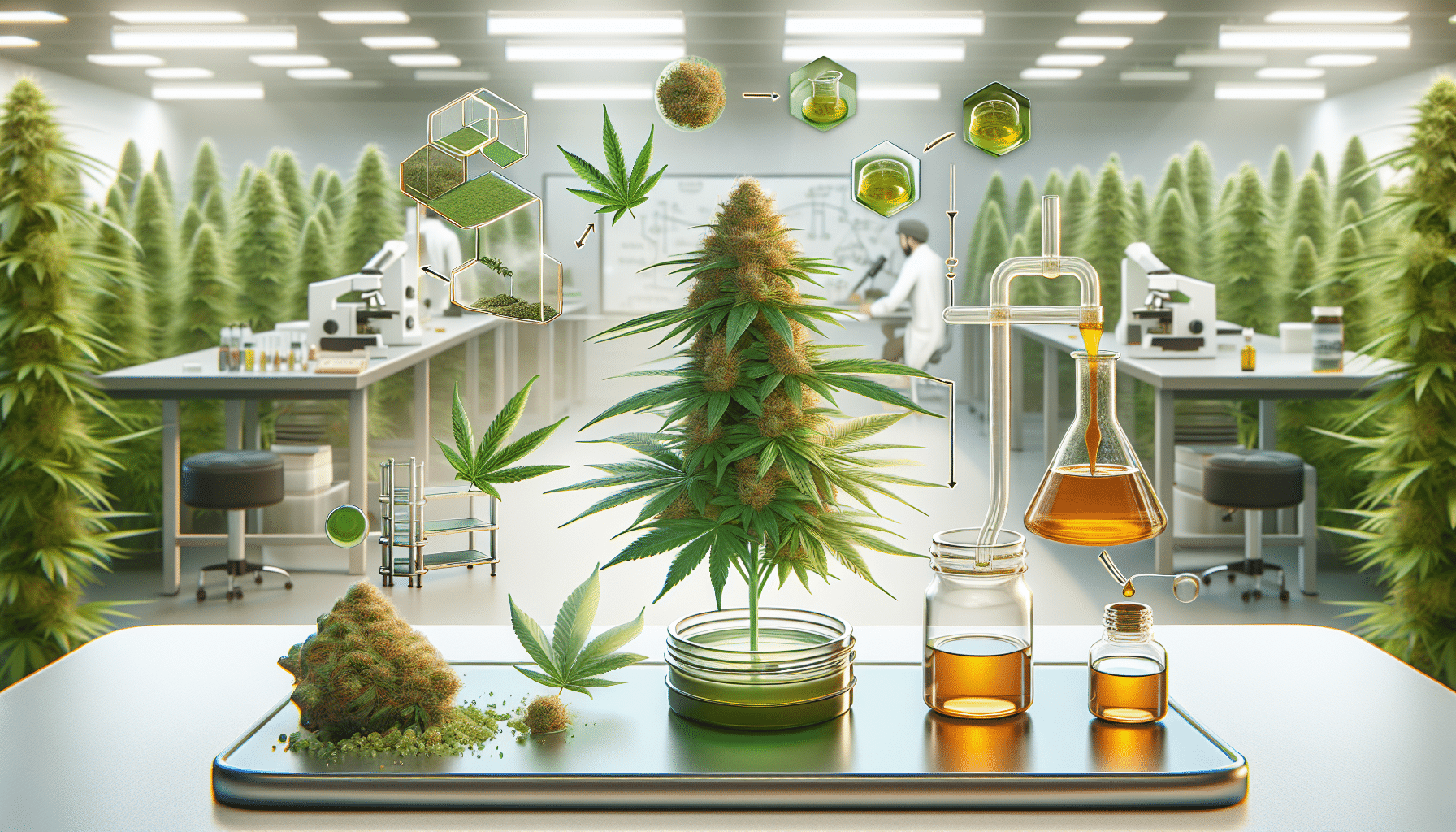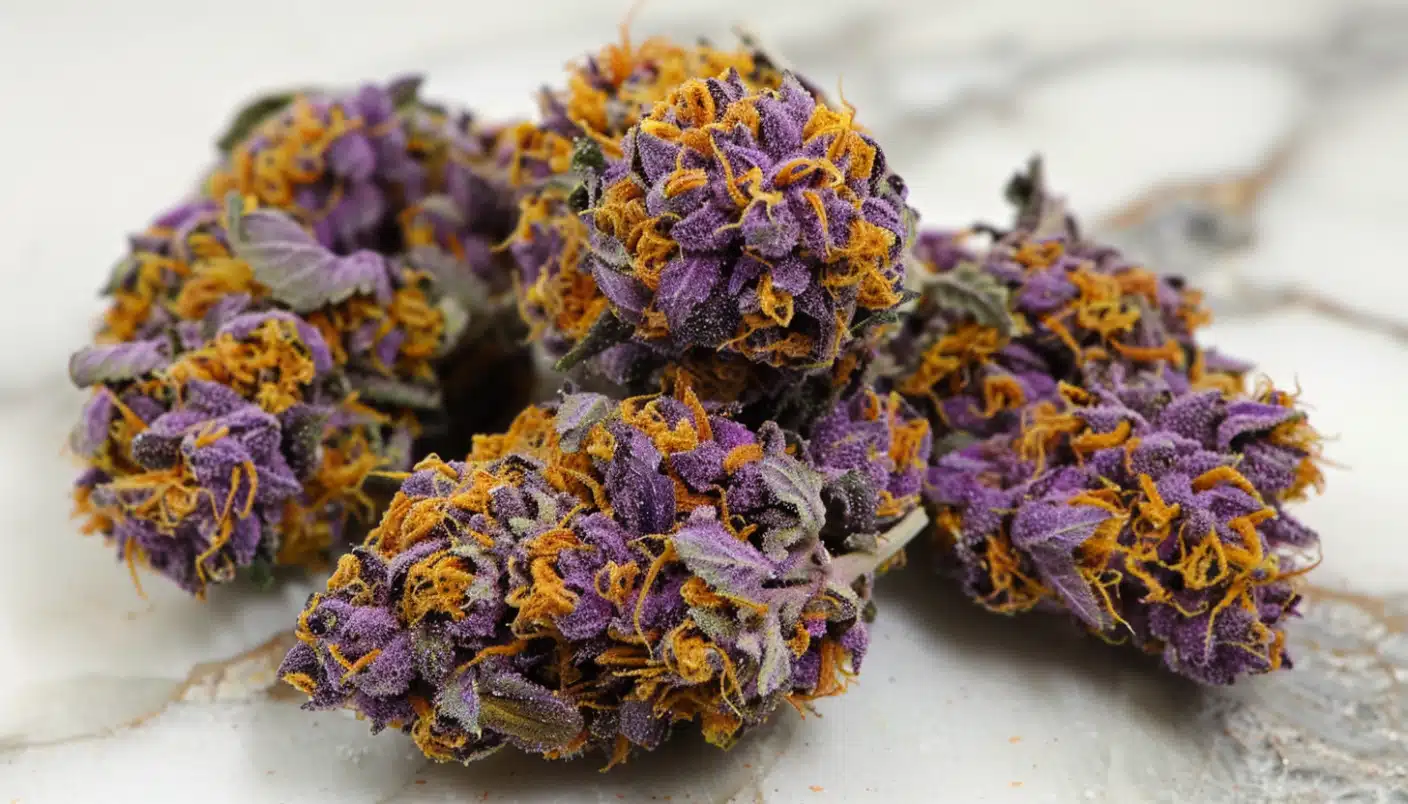What is CBD for Pets?
As pet owners increasingly seek natural remedies for their animal companions’ health and wellbeing, one option has been gaining notable attention: CBD for pets. But what exactly is CBD, and how does it apply to pet care?
Understanding CBD
- Cannabidiol (CBD): CBD is a naturally occurring compound found in the cannabis plant. Unlike its counterpart THC (tetrahydrocannabinol), CBD does not produce a ‘high’ effect and is primarily known for its therapeutic properties.
- Source: Most pet CBD products are derived from hemp, a variety of the cannabis plant with low THC levels. This ensures the products are non-psychoactive and safe for pets.
How CBD Works in Pets
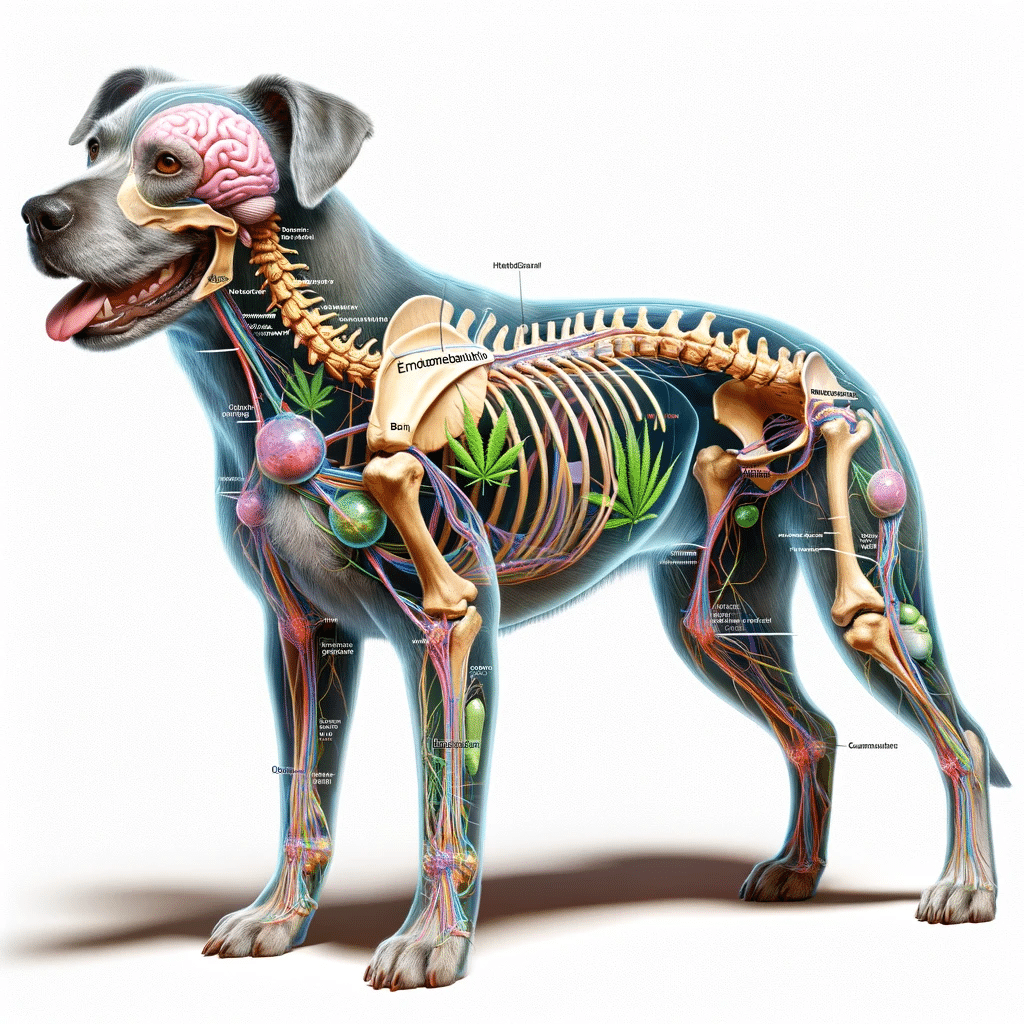
- Endocannabinoid System: Similar to humans, animals have an endocannabinoid system (ECS) that regulates various bodily functions. CBD interacts with the ECS, potentially helping to maintain balance and normal function.
- Benefits: CBD is believed to provide several health benefits for pets, including relief from pain, anxiety, inflammation, and possibly more.
Forms of CBD for Pets
- Products: CBD for pets comes in various forms, such as cbd oil for dogs, tinctures, chews, and topical creams. This variety allows pet owners to choose the form that best suits their pet’s needs and preferences.
Where Does CBD Come From?
- Hemp vs. Marijuana: CBD can be extracted from both the hemp plant and marijuana plant, which are both members of the Cannabis sativa family. However, CBD products for pets are typically derived from hemp due to its low THC content.
- Extraction Process: CBD is extracted from the hemp plant using various methods, with CO2 extraction being one of the most popular due to its efficiency and purity. The extracted CBD is then processed into various forms suitable for pet consumption.
- Regulations and Quality Control: Hemp cultivation and CBD production are regulated to ensure that products are safe and contain the specified amount of CBD. It’s important for pet owners to choose CBD products from reputable sources that adhere to these regulations.
The Challenges of Aging: Odie’s Story
The tale of Odie, an 11-year-old schnauzer, exemplifies the struggles many pets face as they age. Known for his lively demeanor, Odie’s later years were marred by common aging issues such as joint pain and storm anxiety. These ailments not only affected his physical health but also dampened his once-buoyant spirit. This is a scenario where the use of CBD oil for dogs can make a significant difference. Incorporating CBD oil into Odie’s routine could potentially offer relief from these age-related conditions, illustrating the broader impact of this natural remedy on pet wellness, particularly for senior dogs.
Angela Ardolino: Expertise in Pet CBD Products
Angela Ardolino’s exploration into the benefits of CBD oil, particularly for dogs, started with a personal and profound experience. Her journey into the world of medical cannabis was sparked by her own health struggles with rheumatoid arthritis and the health needs of her dog. Finding relief and positive results from using CBD oil, Angela was inspired to delve deeper into its potential benefits for pets. Her intensive studies at the University of Vermont honed her focus on CBD oil for dogs, driven by her passion for pet care and the transformative impact she observed in her dog, Odie. This personal and professional exploration underscored her mission to further investigate and advocate for the use of CBD oil in promoting animal health and wellness.
Understanding CBD and Its Benefits for Pets
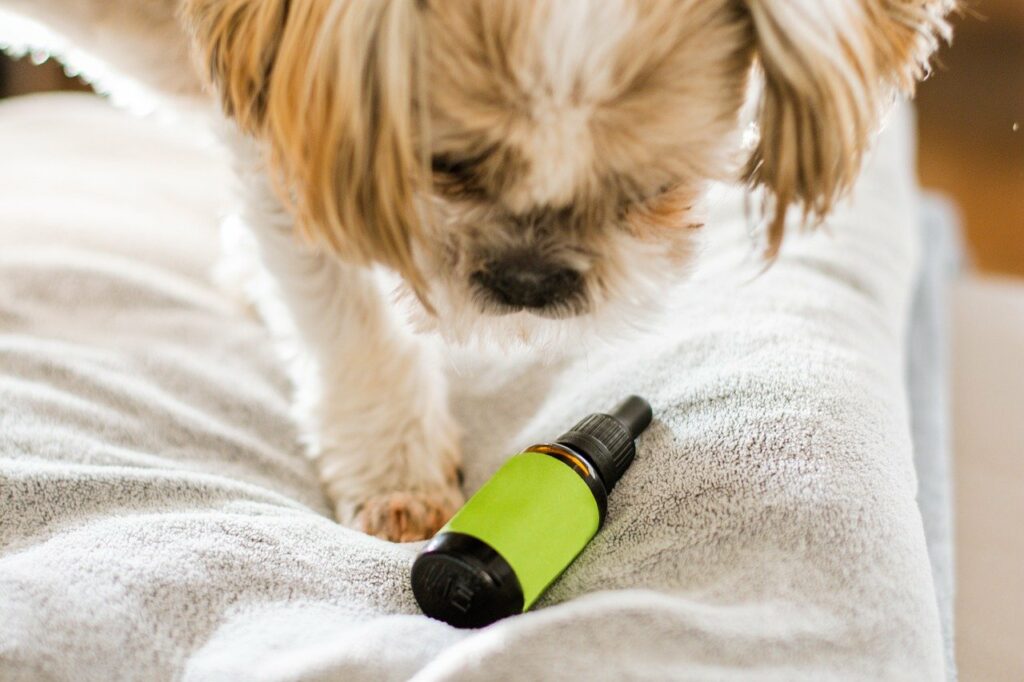
CBD’s role in pet health is multifaceted, impacting various aspects of wellness. In mammals, CBD interacts with the endocannabinoid system, crucial in maintaining balance in the body. Its effectiveness in pets, especially dogs, is enhanced due to their dense concentration of cannabinoid receptors. This biological advantage allows pets like Odie to gain maximum benefit from CBD, addressing a range of health issues from anxiety to chronic pain.
What Does CBD Treat in Pets?
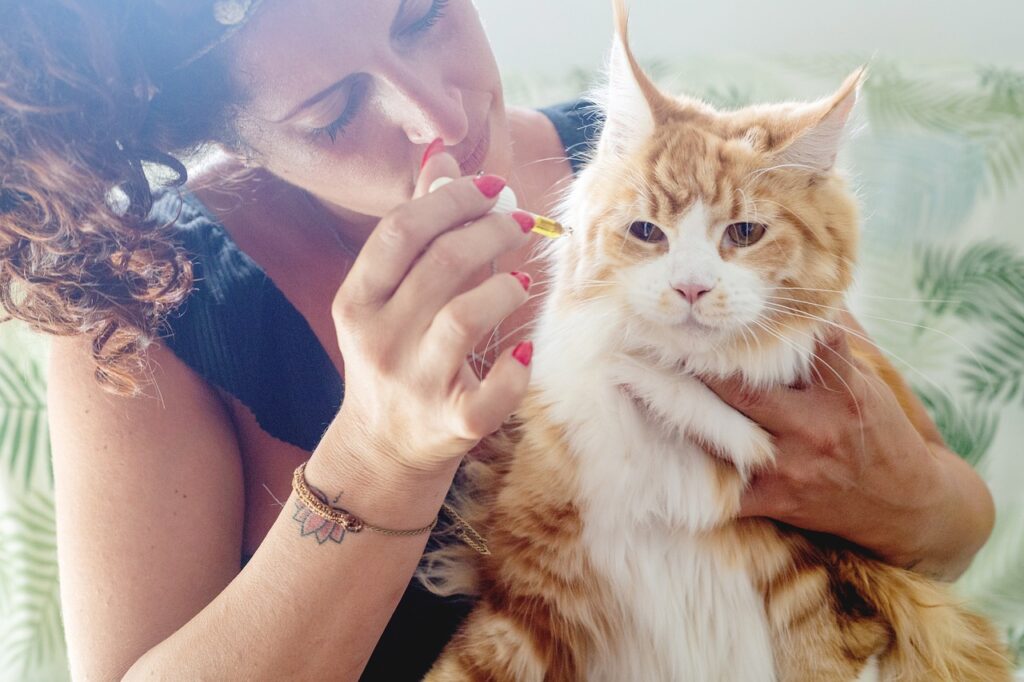
CBD’s scope in treating pet ailments is vast and ever-expanding. Research and anecdotal evidence suggest its effectiveness in managing:
- Behavioral Issues: CBD has shown promise in reducing anxiety and stress in pets, particularly beneficial for those with separation anxiety or noise phobias.
- Chronic Pain and Arthritis: Its anti-inflammatory properties are instrumental in alleviating joint pain and discomfort associated with arthritis, improving mobility and quality of life.
- Gastrointestinal Issues: CBD can aid in managing symptoms of various digestive disorders, contributing to better overall health.
- Neurological Health: Its use in seizure control has been a groundbreaking development, offering a natural alternative for managing epilepsy in pets.
- Oncological Support: CBD may help in managing symptoms related to cancer, such as pain and nausea, enhancing comfort during challenging times.
- Dermatological Health: Its effectiveness in treating skin conditions like allergies and dermatitis brings relief to pets suffering from itchy and irritated skin.
Administering CBD: Dosage and Precautions
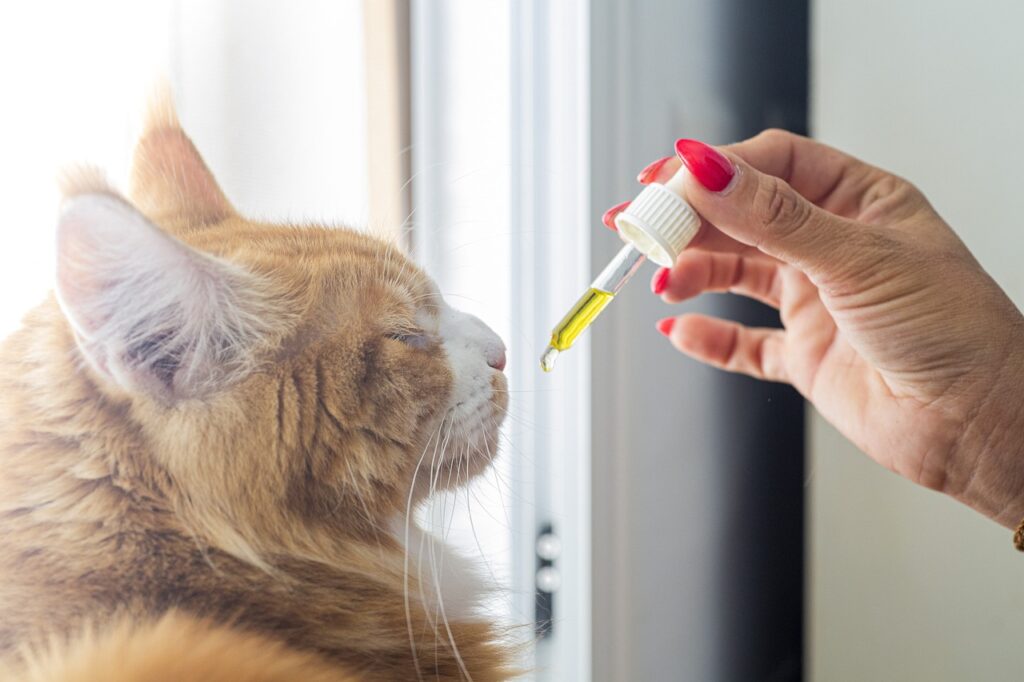
Administering CBD to pets involves careful consideration of dosage to ensure safety and effectiveness. Here are some general guidelines and factors to consider:
Determining the Right Dosage
- Weight and Size of the Pet: Generally, a standard starting dose is approximately 1 mg of CBD per 10 pounds of the pet’s body weight. For instance, a 30-pound dog might start with 3 mg of CBD.
- Type and Severity of the Condition: Conditions like severe pain or anxiety might require a slightly higher initial dose, for example, 1.5 mg per 10 pounds.
- CBD Concentration in the Product: Be aware of the CBD concentration in your chosen product. For example, if a 30 ml bottle of CBD oil contains 300 mg of CBD, each ml will provide 10 mg of CBD.
Starting with a Low Dose
- Gradual Introduction: Begin with a low dose and observe your pet’s response. If there are no adverse reactions and the condition is not adequately managed, you can gradually increase the dosage.
- Monitoring Responses: Look for signs of improvement or any adverse reactions in the hours following administration.
Frequency of Administration
- Consistent Routine: Administering CBD once or twice daily is common. The frequency can be adjusted based on the pet’s response and the condition being treated.
- Adjusting Frequency: For chronic conditions, a consistent daily dose is effective, while acute conditions like anxiety due to fireworks might require a single dose administered shortly before the expected stressor.
Precautions with Other Medications
- Drug Interactions: Since CBD can interact with other medications, particularly those metabolized by the liver, it is crucial to consult with a veterinarian if your pet is on medication.
Quality of CBD Products
- Certification and Testing: Opt for third-party tested products to ensure purity and concentration.
- Avoiding Harmful Additives: Choose products free from harmful additives or preservatives.
Consultation with Veterinary Professionals
- Professional Advice: Veterinarians can offer personalized advice and dosage recommendations based on your pet’s specific health needs.
- Adjusting Dosage Over Time: Dosage may be adjusted based on the pet’s response, under veterinary guidance.
Choosing the Right CBD Products for Pets
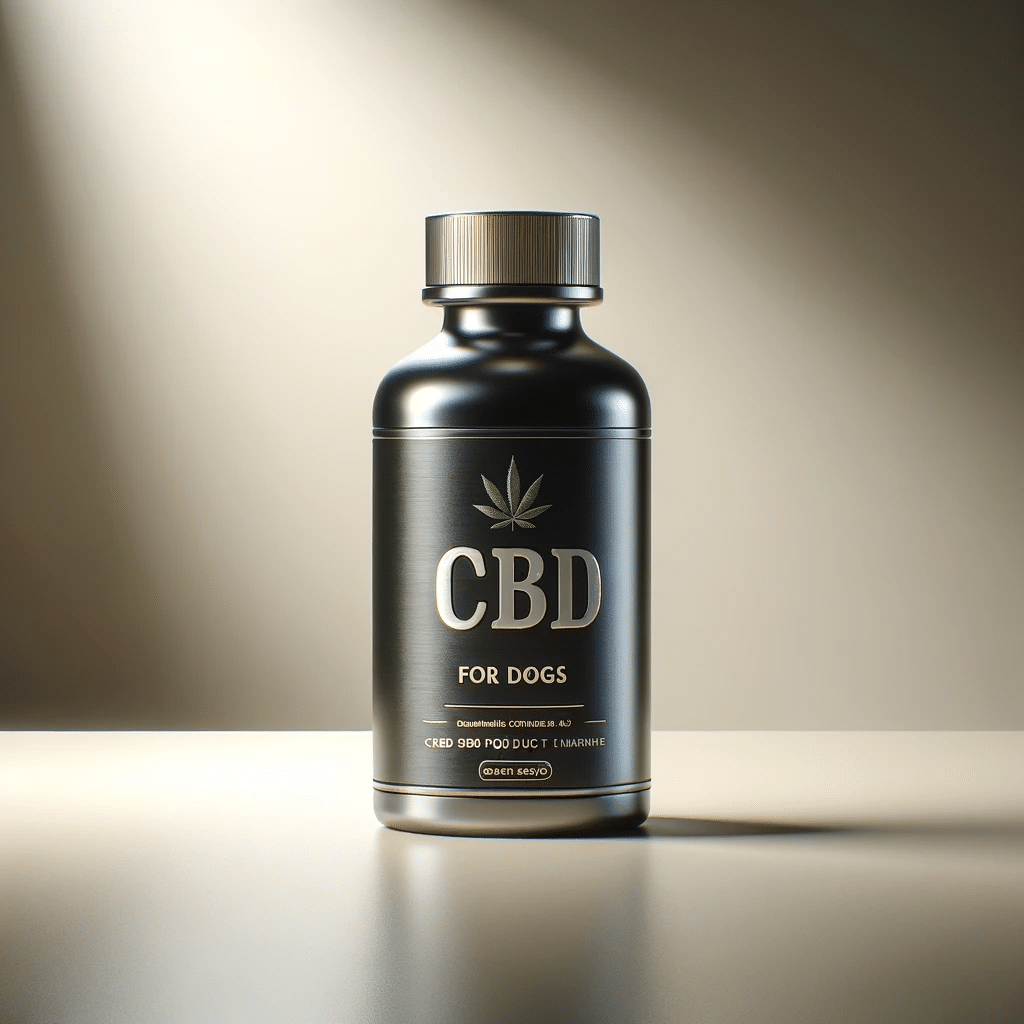
When selecting CBD products for pets, it’s essential to understand the different types available and their specific benefits. The two primary categories of CBD products for pets are full-spectrum CBD and CBD isolates. Additionally, the form in which CBD is delivered — such as oils, chews, or capsules — plays a crucial role in its effectiveness and suitability for different pets.
Full-Spectrum CBD for Pets
Full-spectrum CBD hemp oil contains all the cannabinoids, terpenes, and other compounds found in the cannabis plant, including only trace amounts of of THC. This composition is believed to contribute to the ‘entourage effect’, where the combined effect of different cannabis compounds is greater than the sum of their individual effects. For pets, full-spectrum CBD can be particularly beneficial for:
- Enhanced overall wellness: The combination of cannabinoids and terpenes in full-spectrum CBD is thought to improve general health.
- More comprehensive relief: Full-spectrum CBD may be more effective for pets with complex health issues, where multiple cannabis compounds can work together to provide relief.
However, pet owners should be aware that even trace amounts of THC in full-spectrum products can be sensitive for some pets. Always consult with a veterinarian before starting any CBD regimen, especially with full-spectrum cbd products.
CBD Isolates for Pets
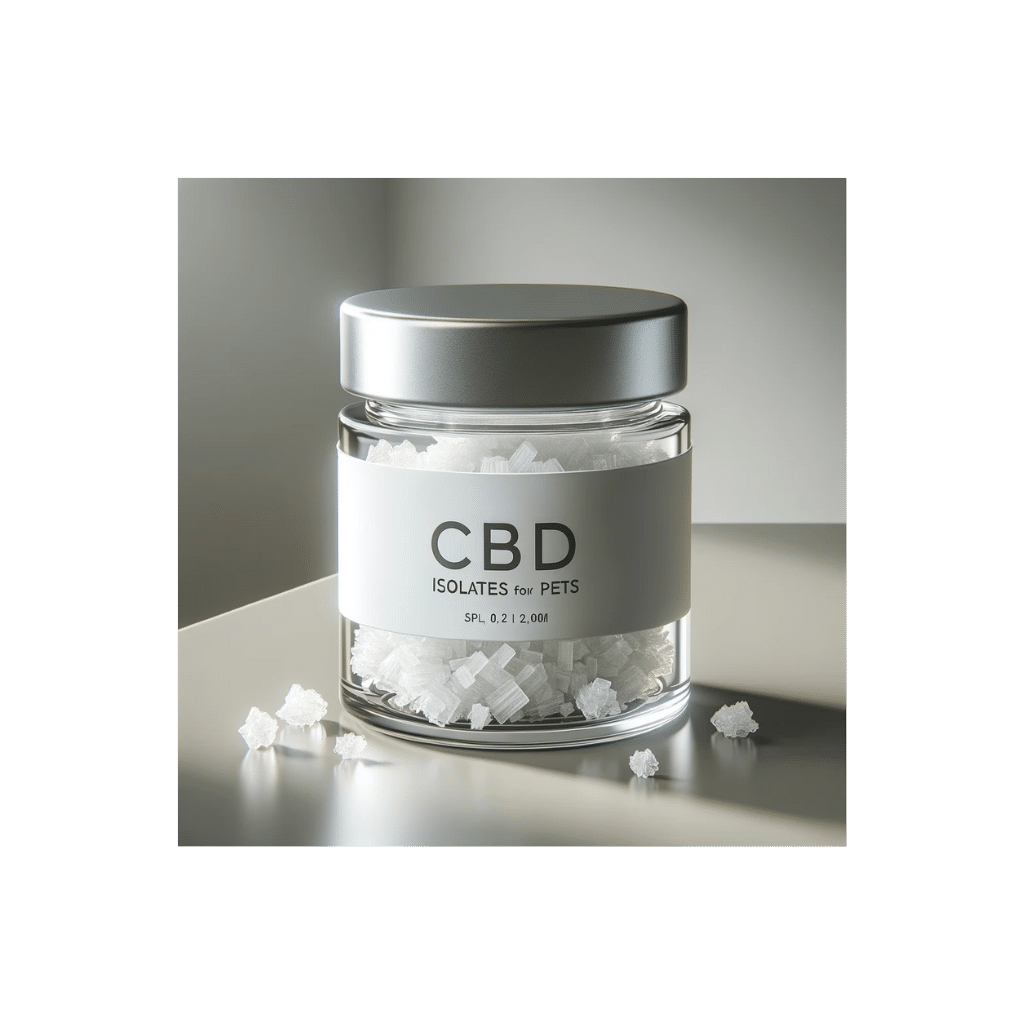
CBD isolates are products that contain only pure CBD, with all other cannabis compounds removed. This type of CBD is ideal for pets that might be sensitive to other cannabinoids or for owners who prefer to avoid any THC in all natural ingredients in their pet’s supplements. Benefits of CBD isolates for pets include:
- No risk of THC exposure: Ideal for pets sensitive to THC or in cases where any THC exposure must be avoided.
- Consistent dosing: Since isolates contain only CBD, it’s easier to measure and administer consistent doses.
CBD Chews and CBD Treats for Pets

CBD-infused chews and cbd treats are a popular and convenient way to administer CBD for pets.
- Offer easy administration: Most pets enjoy the taste of CBD chews, making it easier to incorporate CBD into their routine.
- Provide precise dosing: Each chew or treat contains a specific amount of CBD, which helps ensure consistent dosing.
CBD Oils and Tinctures for Pets
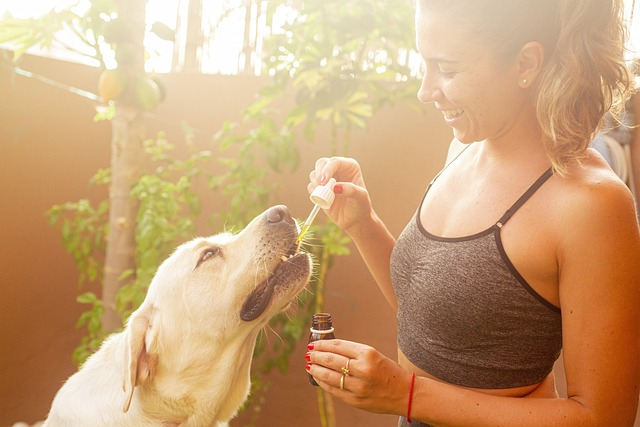
CBD oils and tinctures represent a significant segment of the pet wellness market, offering a versatile and effective way to administer CBD. Understanding all the properties, distinctions and benefits of these products is crucial for pet owners considering CBD as a part of their pet’s health regimen.
Understanding CBD Oil for Pets
- Composition: CBD oil for pets typically contains a concentration of cannabidiol (CBD) suspended in a carrier oil. High-quality CBD oils are often made from organically grown hemp plants, ensuring purity and potency.
- Benefits: CBD oil is lauded for its potential to alleviate various conditions in pets, including anxiety, pain, and inflammatory issues. Its liquid form allows for flexible dosing and easy integration into a pet’s diet.
Hemp Oil in Pet Products
- Clarifying the Confusion: It’s important to differentiate between CBD oil and hemp oil. Hemp oil, often derived from the seeds of the hemp plant, does not contain CBD but is rich in other beneficial nutrients such as omega fatty acids.
- Nutritional Supplement: While hemp oil does not provide the same benefits as CBD oil, it can be a valuable nutritional supplement for pets, supporting skin health, coat quality, and overall wellness.
Administering CBD Oil and Tinctures
- Dosage: The key to effective use is proper dosing, which depends on the pet’s size, age, and specific health needs. It’s advisable to start with a low dose and gradually increase it based on the pet’s response.
- Method of Administration: CBD oil can be administered directly into the pet’s mouth or mixed with food. Some pets may prefer tinctures flavored to suit their taste, making administration easier.
The Versatility of CBD Tinctures
- Variety of Concentrations: CBD tinctures come in various concentrations, allowing pet owners to choose a product that best suits their pet’s specific needs.
- Rapid Absorption: When administered sublingually, tinctures can offer quick absorption, making them an ideal choice for pets needing fast relief.
Quality and Safety
- Third-Party Testing: Opt for CBD oils and tinctures that have been third-party tested for quality and safety. This ensures that the product contains the stated amount of CBD and is free of harmful contaminants.
- Consultation with Veterinarians: Before introducing CBD oil or tinctures into a pet’s routine, consulting with a veterinarian is essential, especially for pets with existing health conditions or those on other medications.
Factors to Consider When Choosing CBD Products for Pets
When selecting CBD products for your pet, consider the following factors:
- Pet’s size and weight: Larger pets may require higher doses of CBD.
- Specific health needs: Certain forms of CBD may be more effective for specific conditions.
- Quality and purity: Look for products that are third-party tested and made from high-quality ingredients.
Safety and Side Effects of CBD in Pets
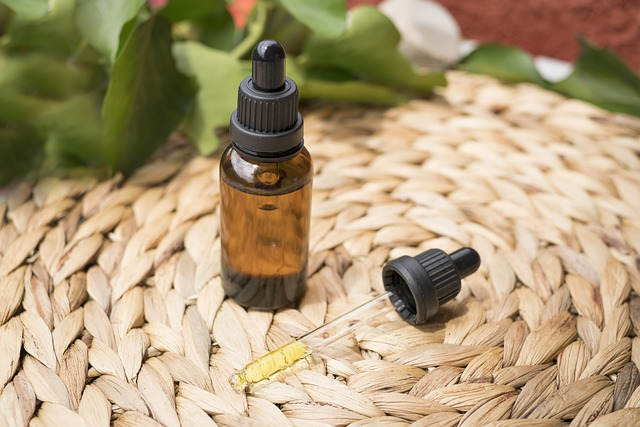
As the use of CBD for pets gains popularity, understanding its safety profile and potential side effects is crucial. Recent studies and ongoing research provide valuable insights into the implications potential benefits of using CBD in pet care.
Research on CBD Safety in Pets
- Veterinary Studies: Several veterinary studies have explored the safety of CBD for pets, primarily focusing on cbd oil for dogs. A study published in the Journal of the American Holistic Veterinary Medical Association found that CBD oil was well-tolerated and safe for dogs when used according to recommended dosages.
- Long-Term Effects: Research on the long-term effects of CBD in pets is still emerging. Early indications suggest that regular use of CBD does not result in significant adverse effects. However, continuous monitoring and further studies are necessary to fully understand its long-term impact.
Common Side Effects Observed
- Mild Gastrointestinal Issues: Some pets may experience mild digestive issues, such as diarrhea or reduced appetite, when they begin taking CBD. These side effects are usually temporary and often resolve as the pet’s system adjusts to the supplement.
- Drowsiness: Higher doses of CBD may lead to drowsiness or lethargy in pets. Adjusting the dosage can often mitigate this side effect.
CBD and Drug Interactions
- Interaction with Other Medications: CBD can interact with other medications, potentially altering their effects. A study in the Journal of Veterinary Pharmacology and Therapeutics highlighted the need for careful consideration when CBD is used alongside traditional medications, especially those metabolized by the liver.
Importance of Proper Dosage
- Dosage Guidelines: Adhering to dosage guidelines is crucial for minimizing side effects. Veterinarians often recommend starting with a low dose and gradually increasing it while monitoring the pet’s response.
- Individual Variations: The appropriate dosage of CBD can vary significantly depending on the pet’s size, age, and overall health condition. Personalized dosing, as guided by a veterinarian, is essential for safety and efficacy.
Choosing High-Quality CBD Products
- Product Purity and Composition: Selecting high-quality CBD products is vital for ensuring safety. Products should be sourced from reputable manufacturers and ideally be third-party tested to verify their purity, concentration of CBD, and absence of harmful contaminants like pesticides and heavy metals.
Consultation with Veterinarians
- Professional Guidance: Consulting with a veterinarian before starting any CBD regimen is strongly advised. Veterinarians can provide guidance on the suitability of CBD for a pet’s specific health conditions and needs, as well as help determine the most appropriate dosage.
Emerging Trends in the CBD Pet Products Market

The CBD pet products market is witnessing remarkable growth, projected to expand at a CAGR of 12%. This surge is driven by increasing consumer awareness and appreciation of natural supplements, alongside a deeper understanding of the medical and therapeutic benefits of cannabis plants. Financially, the pet cbd product sector is booming, with consumer spending on pet CBD reaching US$426 million in 2020 and anticipated to hit US$629 million in sales by the end of 2021. By 2025, the value of the CBD pet space is estimated to be between US$175–225 million, representing a significant portion of the hemp-derived CBD consumer products category.
Integration of CBD in Holistic Pet Care
As pet owners increasingly seek all natural ingredients and personalized care options for their pets, CBD has emerged as a key component of holistic pet wellness. This shift is evidenced by the prominence of CBD supplements at major industry events like the Global Pet Expo. The focus of pet parents is not just on alleviating specific ailments but on a comprehensive approach to pet health that includes personalized nutrition and sustainable products, with CBD playing a central role.
The Future of CBD in Pet Healthcare
The pet supplement industry, on a trajectory to reach $1.05 billion by 2027, sees CBD as potentially its fastest-growing category. Reflecting a future where CBD is an integral part of pet healthcare, ongoing research and development initiatives continue to unveil its burgeoning potential. The integration of CBD into pet healthcare is indicative of a broader trend towards natural, effective remedies in pet wellness.
How Do You Safely Use CBD for Pets
Safe usage of CBD in pets involves:
- Starting with Low Doses: Begin with a small dose and gradually increase it, observing the pet’s response.
- Regular Monitoring: Keep track of the pet’s behavior and physical health to gauge CBD’s effectiveness and adjust dosages accordingly.
- Quality Products: Opt for high-quality, lab-tested CBD products specifically formulated for pets.
What Are Some Common Terms I Should Know?
Understanding key CBD-related terms enhances comprehension and decision-making:
- Cannabinoid: A chemical compound found in cannabis that interacts with the body’s endocannabinoid system.
- Endocannabinoid System: A biological system in mammals that plays a role in regulating various physiological processes.
- THC (Tetrahydrocannabinol): The psychoactive compound in cannabis; generally absent or present in very low quantities in CBD products for pets.
Where to Buy CBD Products for Pets
When looking to purchase CBD products for pets, consider the following options:
- Specialty Pet Stores: Many offer a range of CBD products specifically formulated for pets.
- Online Retailers: Websites like Angela Ardolino’s CBD Dog Health provide a variety of options, along with detailed product information and usage guidelines.
- Veterinary Clinics: Some veterinarians stock CBD products and can provide guidance on the most suitable options for your pet.
How Does CBD Work Differently in Pets Than in People?
While CBD’s effects on the pet’s endocannabinoid system are similar in pets and humans, there are key differences in how it works. Pets, especially dogs and cats, have a higher density of cannabinoid receptors in their brains compared to humans. This makes them more sensitive to the effects of cannabinoids like CBD. Therefore, pets often require lower doses of CBD than humans to achieve therapeutic effects. Additionally, pets metabolize CBD differently, which can impact the duration and intensity of its effects. It’s crucial for pet owners to understand these differences to ensure safe and effective use of CBD in their animal companions.

